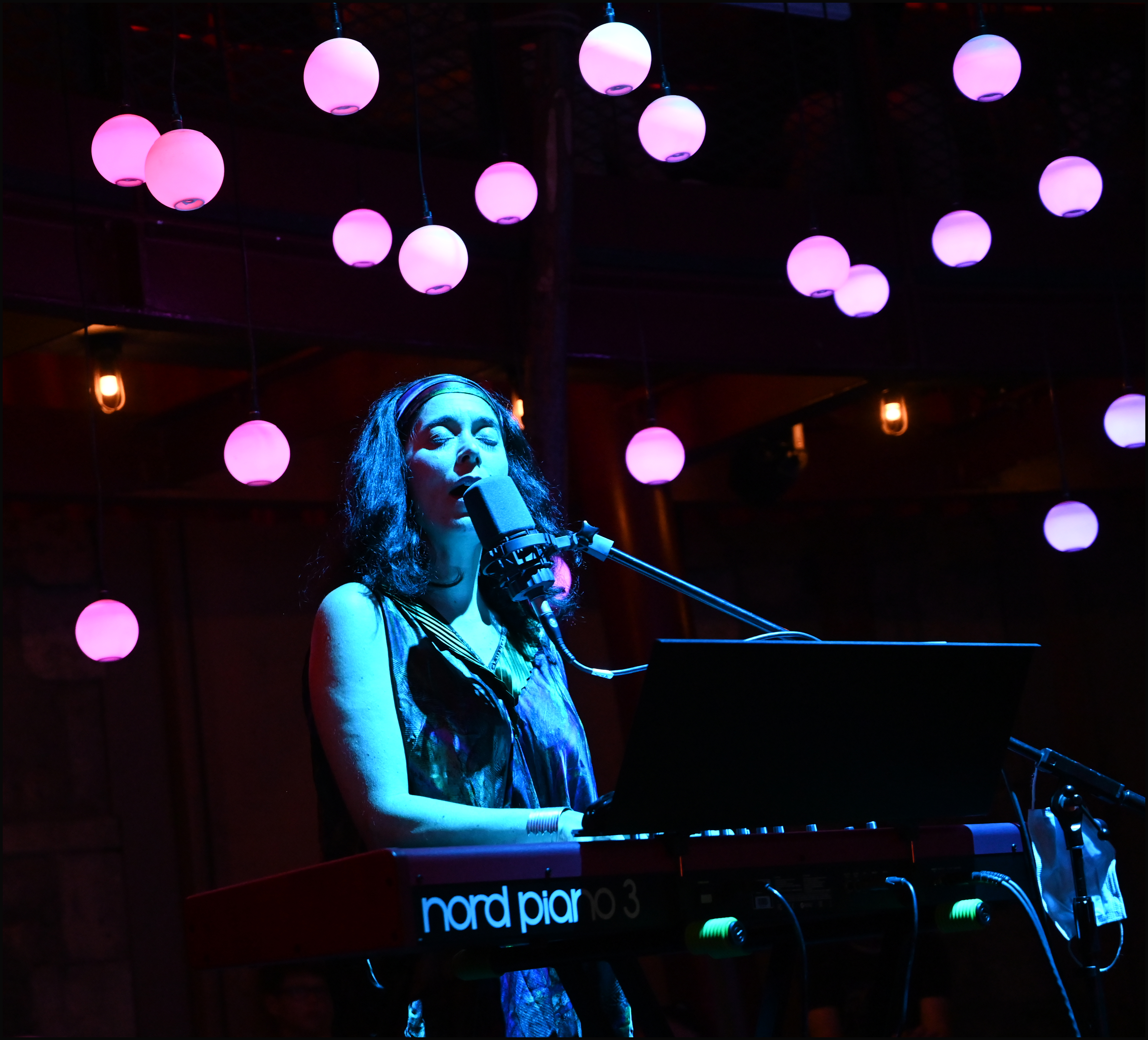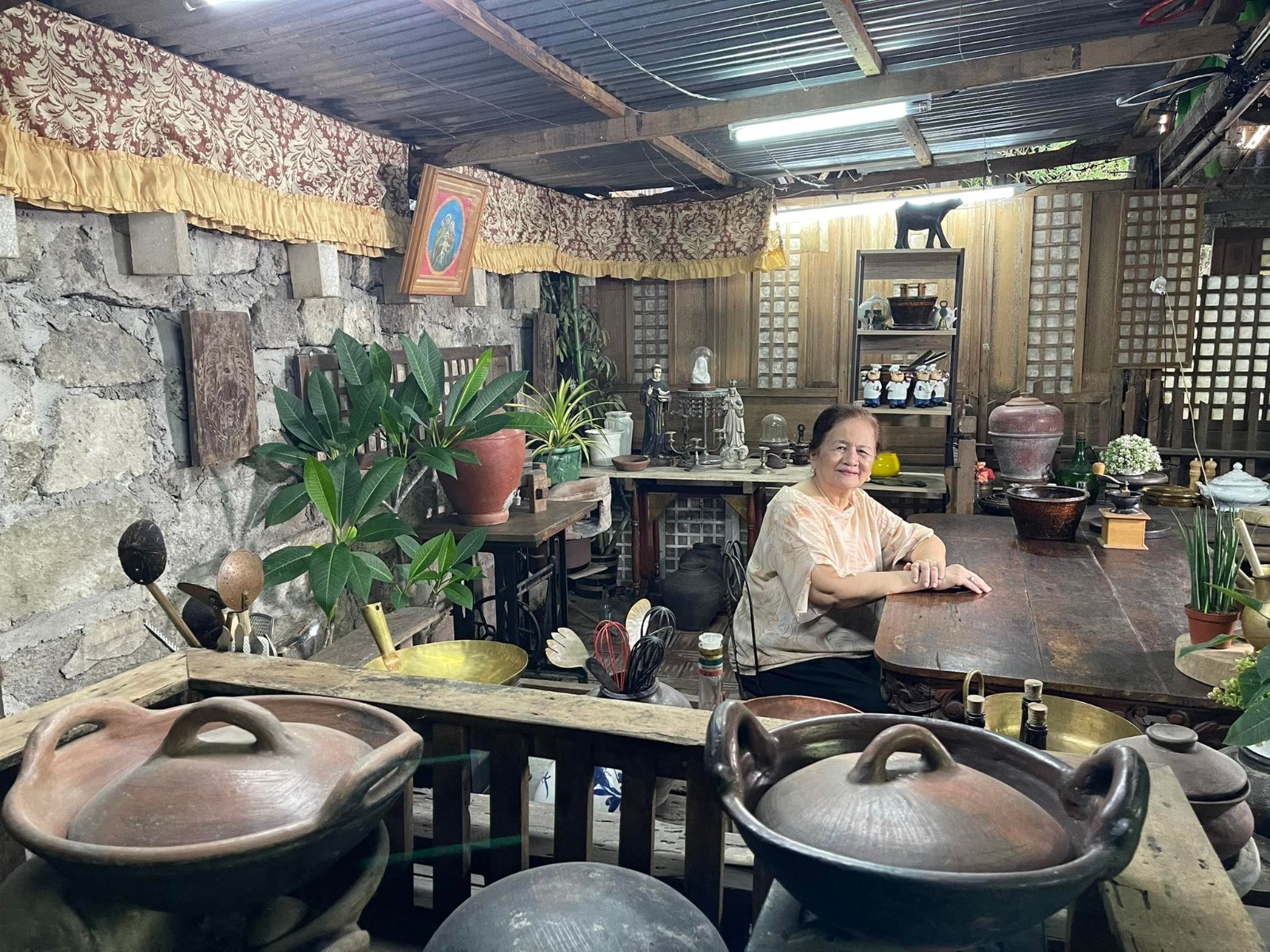How to stand up to a dictator: A manual
Less frontline journalist memoir and more instruction manual for anyone navigating bullshit, How To Stand Up To A Dictator tracks Maria Ressa's journey: from young girl squaring up to bullies in a New Jersey school to Nobel Laureate seeing off the strongmen and kleptocrats of the Philippines.
It’s not every day you get to meet a Nobel-winning badass. The mid-November evening started as most book launches do - guests arrive, some mingle and linger, others save their seats and hunt for drinks. This one was a little different. All 30-ish of us were invited, clandestine-like, by friends, and vouched for one another for security reasons.
We were a curated group of Filipino civil society in the UK - journalists, writers, artists, publishers and human rights workers. Some of us brought our kids. At the centre of the evening was Nobel Laureate and Rappler CEO Maria Ressa and her book How to Stand Up to a Dictator. Her safety, we were told, was key. So, in a very un-Filipino way, we kept it schtum until after the event.
I’m not sure how much of this my toddler will remember, but I see it as a fundamental part of their upbringing - just like my early childhood was rooted in manning (toddlering?) picket lines and attending anti-Marcos protests with my own mother. There’s a photograph somewhere of me in my Nanay’s arms with my fingers forming an “L” for “laban” - the Tagalog word for “fight”. We were marching on the streets of Manila against the then-Filipino dictator Ferdinand Marcos.
Maria was taking an emergency meeting on the phone so the evening started later than planned, despite everyone arriving at the small North London bookshop on time. Another Filipino first. We kicked off her book tour because it was appropriate to start things “in the community”, and she encouraged us to be “pillars” of this community. Given consistent and persistent bullying and death threats from supporters of former Philippine president Rodrigo Duterte and current president Bongbong Marcos, the late dictator’s son, I expect "pillars" was also shorthand for ‘the Filipinos who don’t want me dead’.
Ressa writes fearlessly about her current struggles and many of her historical ones. In the foreword, lawyer Amal Clooney describes her as a five-foot-two superhero. “Journalists operating in authoritarian countries need superpowers," Clooney explains, because the so-called rule of law is meaningless if the law exists to uphold injustice. Or if it doesn’t apply to crimes committed in a virtual space.
Six years of government attacks have left Ressa more emotional than she has “ever allowed” herself to be. “I feel the pent-up anger at the injustice I have no choice but to accept,” she writes. “I may go to jail. For the rest of my life – or, as my lawyer tells me, for more than a hundred years. On charges that should never even have made it to court. The breakdown of the rule of law is global, but it has become, for me, personal. In less than two years, the Philippine government issued ten arrest warrants against me. I could also be a target for violence.”
You don’t know who you are until you’re forced to fight for it.
A high school teacher gave me a habit around books: If the first sentence doesn’t make you want to read on, put it down. Reading Maria’s words, it’s hard holding back tears in my eyes and lumps in my throat. It’s like my mom is sitting in my living room, growling defiantly at authorities again. Gossiping, in her teacher-voice, about politicians. Unlike many parents, my mom was happy I decided to become a journalist - as if years of political education and fretting that I decided to study theatre had finally paid off.
I don’t know why Maria Ressa's story resonates with me - or maybe I do. She’s an amalgam of my mom’s experiences and my own - her mom and my mom share a maiden name. We’re both Filipinos who were laundered through the American education system and grew up with a hyphenated Filipino-American identity. My mom was also threatened with death by a dictator - an event that turned her pipe-dream of moving to America into a hastily planned escape that split my family in half. I fled to the States with my parents while my siblings toughed it out in Manila. My parents fought each other and the American immigration system until we found someone to sponsor our refugee status.
“You don’t know who you are until you’re forced to fight for it” is the first line in How to Stand Up to a Dictator. It’s Maria’s unwavering stance, although she probably had little choice in fighting many of the battles she fights now - Duterte installed a “cyber-libel” law that saw her and another Rappler journalist arrested and tried for publishing an article that alleges a businessman had links to illegal drugs and human trafficking. She has also been targeted by other court cases that allege tax evasion and foreign ownership violations - anything Duterte thought would stick.
The fact that the Norwegian Nobel Committee gave the 2021 Nobel Peace Prize to two journalists, Ressa and Novaya Gazeta editor Dmitry Muratov, highlights the fact that modern wars and insurrections are fought also in papers, on screen and online. Old school conflicts over land and resources are as important as the contest over who gets your screen time and, in turn, your living time.
Duterte wasn’t Ressa’s first rodeo with abuses of power. While running news operations at ABS-CBN, then the country’s biggest broadcaster, a local politician loyal to president Gloria Macapagal Arroyo ambushed and murdered 58 people, 32 of them journalists, who were accompanying his rival to file for candidacy for an upcoming election. Maria says the person who leaked one of the early images of the killings was a citizen journalist, likely a soldier - because as the news was breaking, the only people who had access to the burial site were military. The Maguindanao (Ampatuan) Massacre remains the single most deadly attack on journalists in history and the Philippines is still one of the most dangerous countries to be a journalist anywhere in the world.
Rappler is a unique beast in the information wars. It was founded by women - Maria Ressa, Chay Hofileña, Beth Frondoso and Glenda Gloria - as a Facebook page called MovePH with twelve journalists and developers in 2011 that quickly became the Rappler website in 2012. I got a chance to visit their offices in 2018 with my documentary filmmaker hat on, for a film based on Jonathan Ong and Jason Cabanes’s work on troll farms. I wanted to make a film on those farms and the people who worked there, weaponised relativism and the journalists who fight it. I ended up with a different film, but the impression I left their offices with stuck with me. This is where activism and journalism work - where each and every body was working to make this world a more hopeful place. Despite the risks. They even took therapy breaks.
If you’re brought up in Western newsrooms, journalism and activism are forcibly set apart. When Maria Ressa took the decision to root herself and her work in the Philippines, she found that, there, activism and journalism are inextricably connected. Which, I believe, is why she has campaigned so fiercely for people to be more aware of what goes on in the virtual space. Elections were won online long before anyone lined up at a polling booth - and companies like Facebook were using the Philippines and its people as a test site for disinformation. If she could, she would end surveillance capitalism and stop coded bias.
This generation’s battle will be the battle for truth.
Just when you think the book is becoming too informative and too empowering, Maria Ressa hits you in the face with a brick. You sense that she is someone who stares at her own mortality as often as we stare at our own reflection. She writes about how she feels when her lifelong friend and fellow journalist Twink Macaraig dies of cancer. “I assumed that her strength of will would ultimately prevail over the disease. I suppose that’s a fundamental belief I should reexamine: that you can shape the world you live in with your mind.” She later reprints parts of an article Twink wrote that ends with her lost friend’s resolve to fight as long as the very heart of her remains unbreached. It always makes her cry.
That is an important prelude to the final chapter: Why Fascism is Winning. It isn’t as bleak as it looks - despite herself, Maria is doggedly hopeful. We know there’s a cancer in our information ecosystem that will kill us - she unpacks that succinctly and effectively - and we won’t be as eloquent as Twink when we approach our death. Maria Ressa and her friends built Rappler on three pillars: “technology, journalism and community.” It’s her hope that others use that foundation to fight back and live.
The Philippines is now looking at a country run by the son and daughter of former dictators. “Kleptocrats” as Maria calls them. “This generation’s battle will be the battle for truth.”
Although I read the book with Maria’s voice in my head, my mom’s voice came through my heart. I keep turning the pages back and forth, scanning it for a scent of her, much in the same way you look at your body as you age to realise which parts are your mother’s. There’s a rage in Maria’s writing - but it’s grounded in Plutarch and politics. Her humanity is what lifts this from being another autobiography to art.
How to Stand Up to a Dictator: The Fight for Our Future is published by WH Allen, an imprint of Ebury Publishing, part of the Penguin Random House Group (£20).
Photo credit ©Carla Montemayor. The images of children have been blurred.
The Lead is now on Substack.
Become a Member, and get our most groundbreaking content first. Become a Founder, and join the newsroom’s internal conversation - meet the writers, the editors and more.




